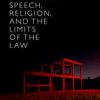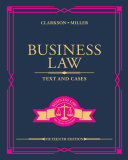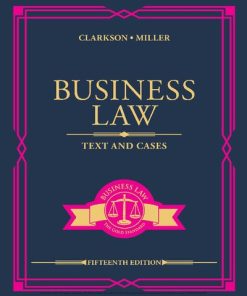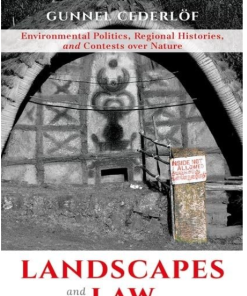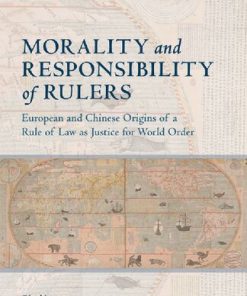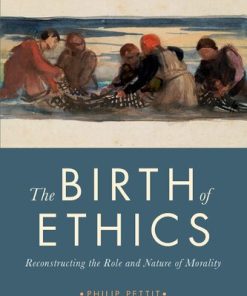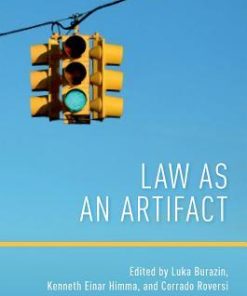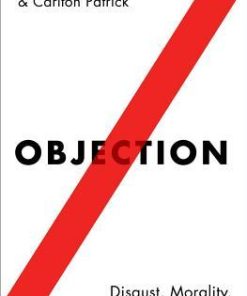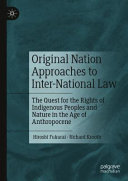Morality And The Nature Of Law Kenneth Einar Himma 1st edition
$50.00 Original price was: $50.00.$25.00Current price is: $25.00.
Morality And The Nature Of Law – Ebook Instant Download/Delivery ISBN(s): 9780191035197,9780191790089,9780198723479,019103519X,0191790087,0198723474
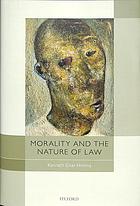
Product details:
- ISBN-10 : 0198723474
- ISBN-13 : 978-0198723479
- Author: Kenneth Einar Himma
Morality and the Nature of Law explores the conceptual relationship between morality and the criteria that determine what counts as law in a given society―the criteria of legal validity. Is it necessary condition for a legal system to include moral criteria of legal validity? Is it even possible for a legal system to have moral criteria of legal validity?
The book considers the views of natural law theorists ranging from Blackstone to Dworkin and rejects them, arguing that it is not conceptually necessary that the criteria of legal validity include moral norms. Further, it rejects the exclusive positivist view, arguing instead that it is conceptually possible for the criteria of validity to include moral norms. In the process of considering such questions, this book considers Raz’s views concerning the nature of authority and Shapiro’s views about the guidance function of law, which have been thought to repudiate the conceptual possibility of moral criteria of legal validity. The book, then, articulates a thought experiment that shows that it is possible for a legal system to have such criteria and concludes with a chapter that argues that any legal system, like that of the United States, which affords final authority over the content of the law to judges who are fallible with respect to the requirements of morality is a legal system with purely source-based criteria of validity.
Table contents:
1. Relationships Between Law and Morality
1. Three types of inquiry about law
2. Natural law theories
3. Inclusive legal positivism
4. Who cares?
4.1 Does a conceptual theory of law have any practical implications?
4.2 Should conceptual jurisprudence not be done?
2. Rethinking the Traditional Interpretation of Anti-Positivist Theories: Classical Natural Law Theory and Dworkinian Interpretivism
1. Modest and immodest approaches to conceptual analysis
2. Two concepts of law
3. Four possible interpretations of a conceptual theory of law
4. Legal positivism as assuming MCA to explain the descriptive concept of law
5. The traditional interpretation of natural law theory construed as a rival to positivism
6. Dworkin’s interpretivism construed as a rival to positivism
7. Construing classical natural law and interpretivism as deploying MCA to explain an evaluative concept of law
8. What do Finnis and Dworkin say?
9. Can ICA ground a viable conceptual methodology?
10. Conclusions
3. Legal Positivism and the Possibility of Moral Criteria of Validity
1. The Differentiation Thesis
2. Conceptual foundations of legal positivism
2.1 The Artifact Thesis
2.2 The Separability Thesis
2.3 The Conventionality Thesis
2.4 The relationship between the criteria of validity and the rule of recognition
3. Inclusive legal positivism
4. Inclusive Positivism and the Arguments from Authority
1. Epistemic and practical authority
2. Practical authority as grounded in a claim of right
3. Power, de facto authority, legitimate authority, and the law
4. Conceptual relations between law and authority
5. The service conception of authority
6. Practical authority and the possibility of moral criteria of validity: The Arguments from Authority
6.1 Law’s claim of legitimate authority: The general strategy of the Arguments from Authority
6.2 The Authority Thesis, the Preemption Thesis, and inclusive positivism
6.3 The Authority Thesis, NJT, and inclusive positivism
6.4 The directives of practical authority as expressing its view about what ought to be done
7. Looking ahead: Evaluating the Arguments from Authority
5. Law’s Claim of Legitimate Authority
1. Understanding the content of a claim of legitimate authority
2. Can law make claims? Two possible interpretations
3. Deriving law’s claim of legitimacy from the beliefs and claims of officials
4. Do the beliefs and claims of officials imply a claim of legitimacy?
4.1 The use of the language of rights and duties
4.2 Officials’ belief that they have a right to impose obligations
4.3 Officials’ claim that subjects owe allegiance
4.4 Designation of officials as “authorities”
4.5 Officials’ claim that subjects have an obligation to obey the law
4.6 The claims taken together
6. Authority, Moral Criteria of Validity, and Conceptual Confusion
1. Identifying the content of our conceptual practices
2. The Identification Thesis and the Arguments from Authority
3. Could law’s claim of authority be conceptually confused?
4. Do most officials accept the Identification Thesis?
7. To Whom the Rules Apply: Norm Guidance and the Incorporation Thesis
1. The guidance function of law
2. Motivational and epistemic guidance
3. The Practical Difference Thesis, the rule of recognition, and valid legal norms
4. Law and the guidance of non-official behavior
4.1 The first Guidance Argument
4.2 Can norms valid in virtue of moral merit epistemically guide non-official behavior?
4.3 Can subjects learn of their legal obligations regarding non-official behavior from the rule of recognition?
4.4 Must subjects be able to learn of their legal obligations regarding non-official behavior from the rule of recognition?
4.5 A methodological objection: The argument is illicitly grounded in contestable claims about morality
5. Law and the guidance of official behavior
5.1 The second Guidance Argument
5.2 Can a valid legal norm governing non-official behavior motivationally guide a judge deciding a case under that norm?
6. Revisiting the Arguments from Authority: To whom the rules apply
8. The Conceptual Possibility of Moral Criteria of Legal Validity
People also search:
morality and natural law
morality and the law
morality and nature
a moral law
the nature of morality and moral theories
what is the moral law of nature
You may also like…
Business & Economics
Business Law: Text and Cases 15th Edition Kenneth W. Clarkson
Commercial & Financial Law
Politics & Philosophy - Government & Politics
Jurisprudence & Law - Legal Theory & Philosophy
Jurisprudence & Law - Legal Theory & Philosophy
Business & Economics - Responsibility and Business Ethics
The Ethics of Killing: Life, Death and Human Nature 1st Edition
Relationships & Lifestyle - Psychological Self-Help


